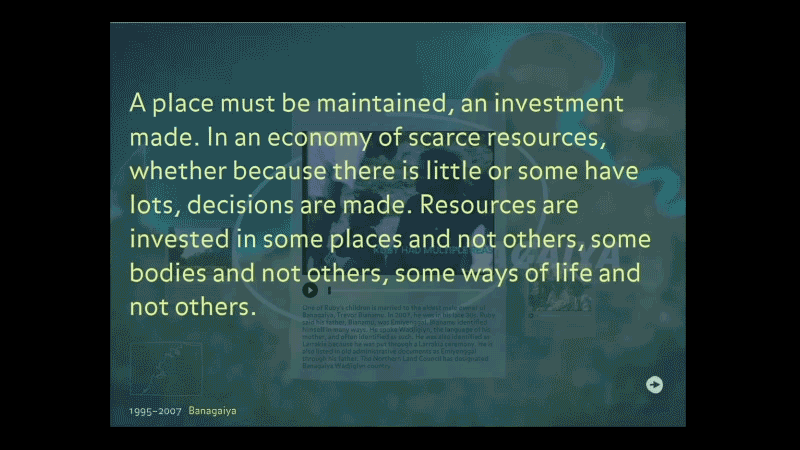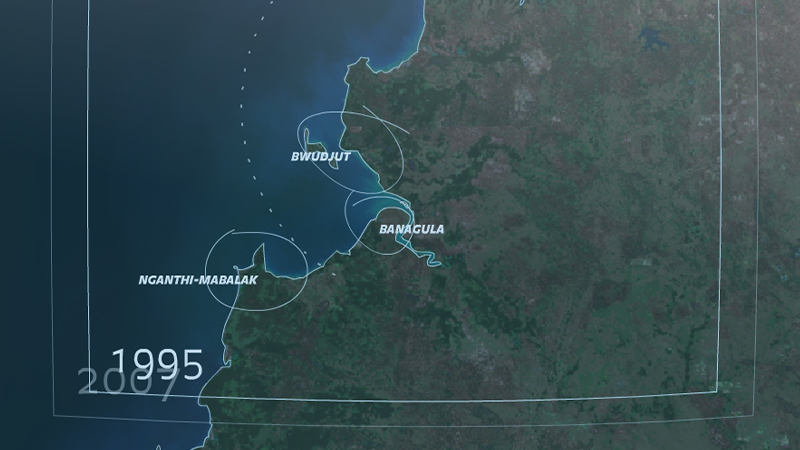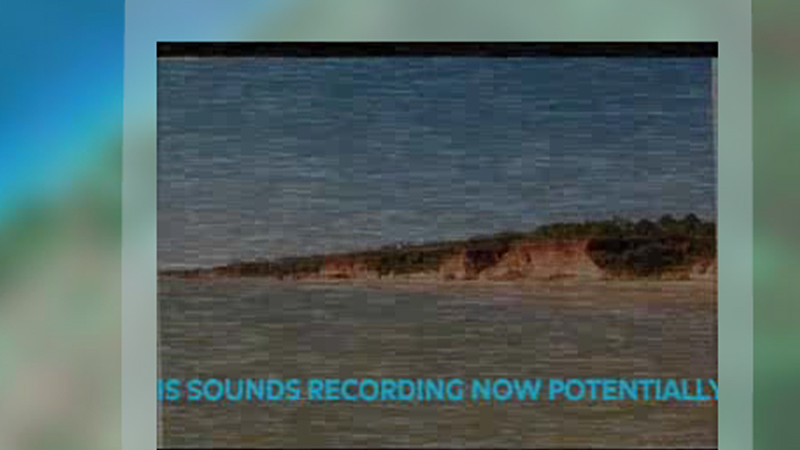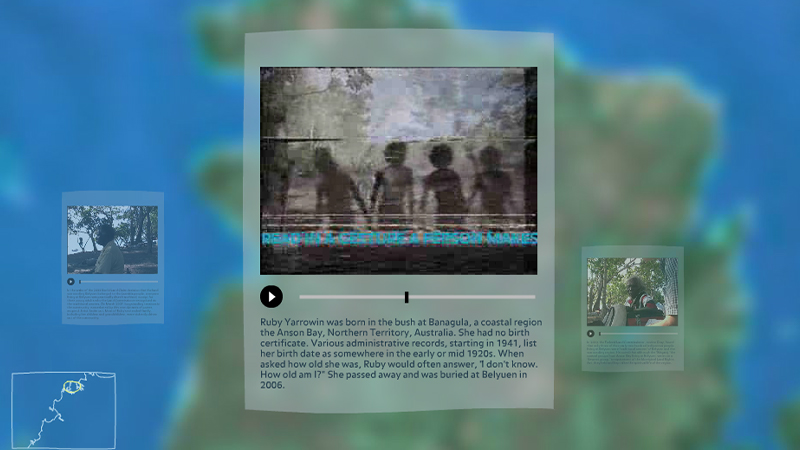In "Digital Futures," the "anthropologist Elizabeth Povinelli explores how our archival obsessions might be reconfigured in support of an 'anthropology of the otherwise.' She asks that we replace our desire for easy access and total knowing with a situated and embodied sociality that foregrounds obligation and trust.
If an archive traditionally organizes its contents in pursuit of a seeming transparency, deploying finding aids and search tools, Povinelli and designer Peter Cho take a different tack in their collaboration. An array of materials (and especially videos) collected during Povinelli's fieldwork in an indigenous community in Australia is here located within a strong narrative and geographic frame. The piece invites the user in through the author's voiceover narration, locating his journey into the project on an abstracted coastal map. The information housed here is not immediately available to the user; rather, it unfolds piece by piece, asking that the user undertake a principled engagement with representations of lived spaces and embodied histories in order to learn more. The viewer of Digital Futures does not travel through chronological time; he moves through the temporalities that the piece and its own logic demand, framed as a stranger. The videos he encounters are not meant to relay the truth of Ruby Yarrowin; their very form works against the dictates of the documentarian impulse and the idea of a singular truth. The videos are palimpsests, richly layered with details that activate multiples senses, destabilizing an easy belief in the indexical nature of images and inviting the user to rewind and reply them. The project is at once an imaginative archive of a specific family and an investigation into the status of the archive in our digital era." – Tara McPherson, Vectors Editor
1 COPY IN THE NEXT
Published in 2012 by Vectors in Volume 3, Issue 2.
Note: this flash work incorporates a database and preservation work is ongoing to make it function as intended. in the meantime, we have made the work available as a playthrough. This copy was given to the Electronic Literature Lab by Erik Loyer in November of 2021.
PUBLICATION TYPE
Online Journal
COPY MEDIA FORMAT
Web



